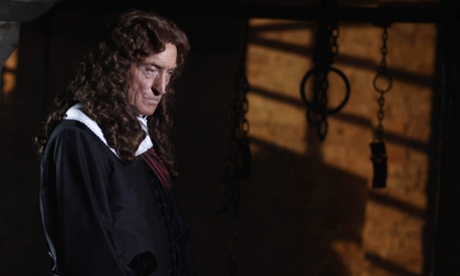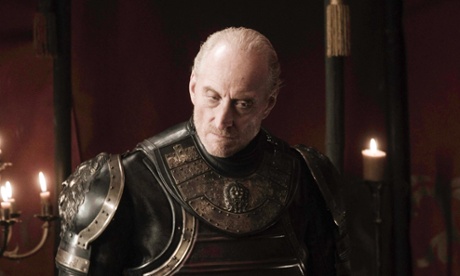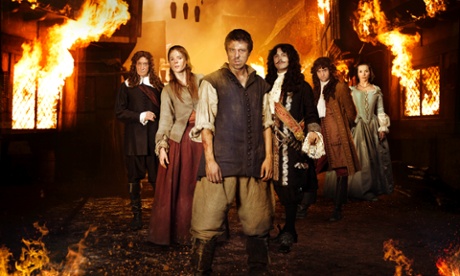Despite budget cuts, Australian pubcaster ABC’s flagship channel has maintained a healthy primetime market share and is growing audiences via its popular catch-up platform.
Overview
ABC’s flagship channel has revitalised its Tuesday and Wednesday schedules this year, as well as scoring high ratings with historical drama The Secret River and political documentary The Killing Season, which have contributed to a slight rise in its overall primetime share.
ABC has ranked as the third most watched network this year on a 10.5% share – up from 10.4% in 2014 – behind Nine and Seven’s primary channels and ahead of Network Ten.
Its catch-up platform iview averaged a record 29 million monthly plays in the first eight months of the year, up from around 20 million last year. This growth has been achieved despite a five-year A$254.4m (US$177.6m) budget cut imposed by the federal government last November.
“All things considered, we’re in remarkable health. We have done a fantastic job in mitigating any damage from the budget cuts,” says ABC TV head of programming Brendan Dahill. “There are a few more repeats than there used to be but we’ve placed them where they add value and do not annoy viewers. We have made some efficiencies which have not impacted on screen and reduced the head count among staff who did not produce content.”
Dahill is keen to boost the pubcaster’s volume of local content from 43% to 60% and rely less on international programming, contingent on funding.
The pubcaster will continue to commission drama and comedy from independent producers and coproduce factual entertainment.
ABC is currently negotiating three-year funding arrangements with the government, which will be implemented from the 2016 budget.
In September, ABC MD Mark Scott confirmed he will step down when his contract expires in mid-2016 after 10 years in the post. The board will soon start to search for a successor.
Recent changes in personnel include Alastair McKinnon, formerly head of business affairs, commissioning and distribution at pubcaster SBS, who succeeded Greer Simpkin as deputy head of fiction. Kath Earle was promoted from commissioning editor/executive producer to acting head of TV arts after Katrina Sedgwick left. Also, former Yahoo!7 executive Gabrielle Cambridge was appointed to the new role of head of TV business.
Current schedule
Earlier this year, Dahill highlighted a couple of content goals for 2015 that included revitalising entertainment on Wednesday nights, and establishing a couple of destinations in the schedule for high-profile commissioned Australian documentaries alongside popular factual programming. That strategy has already delivered some successes.
Original production, entertainment, formats
ABC’s Wednesday night entertainment line-up has been strengthened by the return of Gruen after a two-year absence. The 12th incarnation of the franchise, which investigates advertising, spin, branding and image control, is coproduced with CJZ.
New comedy talkshow The Weekly with Charlie Pickering from prodco Thinkative Television Production performed so well it’s already been renewed for 2016.
However, Dahill opted to rest the BBC comedy quizshow QI this year, observing: “We have been guilty of slightly over using it and that was impacting on its performance.”
The show will return next February.
How Not to Behave, a comedy-entertainment series produced by Screentime and based on the Swedish format So Not OK, has posted modest ratings at 20.00 on Wednesday. Dahill indicates there will be a renewed focus on that timeslot next year.
The ABC also acquired the rights to Dutch format The Bully Project, which sees victims secretly filming their lives for a day before the footage is shown to classmates and the bully, but isn’t ready to reveal more.
The second season of Giant Dwarf’s topical gameshow The Chaser’s Media Circus is holding its own at 20.00 on Thursday in the slot formerly occupied by CJZ’s satirical consumer affairs series The Checkout, which will return in 2016.
Factual
Dahill vows to take a new direction with documentaries and factual programming, spotlighting issues, which he says will resonate with the vast majority of Australians.
One example is Hitting Home, a two-part exposé of domestic violence in which journalist Sarah Ferguson will spend one night in a women’s refuge, then confront the perpetrators. The programme will premiere in November tied into White Ribbon Day, part of a national, male-led campaign to end men’s violence against women.
Screentime’s Outback ER, an ob doc that followed emergency response teams based in the outback mining town of Broken Hill, rated well at 20.00 on Thursday.
Tuesday night ratings lifted after local science show Catalyst moved to 20.00 from the same time on Thursday, providing a strong lead-in to ABC productions such as The Killing Season, Ferguson’s three-part exposé of the ousting of prime minister Kevin Rudd by Julia Gillard); Making Australia Great, in which journalist George Megalogenis chronicles how Australia survived the global financial crisis; and Restoration Australia, which follows the trials and tribulations of seven groups of Australians committed to the task of restoring heritage ruins into living homes.
Among other successes at 20.30 on Tuesdays have been Optomen Television’s Kevin McCloud’s Homes in The Wild and ITV’s Slow Train Through Africa with Griff Rhys Jones.
Drama
ABC has placed a big emphasis on drama as part of its local production mission. The pubcaster commissioned a raft of Australian dramas for 2015, most of them airing at 20.30 on Thursdays
It took a risk with Matchbox Pictures’ Glitch, a paranormal mystery, centred on a small-town cop whose dead wife reappears in a graveyard with a succession of undead characters.
All six episodes were made available on iview immediately after the first episode’s broadcast premiere on July 9 at 20.30. The average five-city overnight audience was a modest 550,000 but there were 1.2 million plays on iview (at an average of 197,000 plays per episode), the most watched series on iview this year.
Dahill acknowledges: “We might have made a mistake with the way we marketed the show. It was a sophisticated genre drama but we did not sell it as such but as a love story with a difference. If I had my time over the campaign would have said, ‘You’ve never seen anything like this on Australian TV before’ and embraced the difference.”
But he continues: “I’m very proud of this show. It is unlike anything we have seen produced in Australia before. It was designed as a two- or three-series arc, so we’re talking to the producers about continuing if we can make it affordable.”
Less successful, however, was Playmaker Media’s eight-part drama Hiding.
Launched in February, the drama follows a Queensland family who are placed into witness protection in Sydney.
Ruby Entertainment’s The Secret River, which followed in June, drew nearly 1.2 million viewers plus 90,000 average iview plays per episode. The two-part miniseries stars Oliver Jackson-Cohen (Mr Selfridge) as an English convict who is transported to colonial New South Wales in 1805, with Sarah Snook as his free-settler wife.
The third season of Every Cloud’s Miss Fisher’s Murder Mysteries, starring Essie Davis as the glamorous 1920s private detective, also performed strongly. Essie has landed a recurring role in season six of Game of Thrones, with Dahill now needing to figure out a way to shoot another series to accommodate her schedule.
The programmer has high hopes for ABC’s upcoming drama The Beautiful Lie (6×60’) from Endemol Australia, a contemporary re-imagining of Tolstoy’s novel Anna Karenina, scripted by Alice Bell and produced by John Edwards and Imogen Banks, which premieres at 20.30 on Tuesday October 20.
He describes the drama, which stars Sarah Snook, Rodger Corser, Sophie Lowe, Benedict Samuel, Gina Riley, Celia Pacquola and Dan Wyllie, as “one of the best dramas we’ve ever made.”
Despite budget constraints, ABC has commissioned a hefty local drama slate for 2016, including the fourth seasons of Essential Media and Entertainment and Blow by Blow’s Rake and December Media’s The Doctor Blake Mysteries (both 8×60’).
Essential is also producing Jack Irish (6×60’), a spin-off of three TV movies starring Guy Pearce as a former criminal lawyer turned private investigator and debt collector.
In addition, there will be second seasons of Screentime’s legal drama Janet King (8×60’) and Playmaker Media’s The Code (6×60’), which follows brothers Jesse (Ashley Zukerman) and Ned (Dan Spielman) as they face the possibility of being extradited to the US to face serious charges.
Dahill also singles out the upcoming Cleverman (6×60’), a high-concept genre drama set in the near future which sees a group of non-humans battling for survival in a world where humans feel increasingly inferior to them and want to silence, exploit and kill them. An Australian/New Zealand coproduction between Goalpost Pictures and Pukeko Pictures, it stars Iain Glen (Game of Thrones), Frances O’Connor (The Missing), Deborah Mailman, Hunter Page-Lochard, Rob Collins and Stef Dawson.
Further projects lined up for 2016 include Matchbox Pictures’ Barracuda (4×60’) is an adaptation of a novel by Christo Tsiolkas (The Slap), the saga of a 17-year-old Greek-Australian’s struggle to achieve the ultimate accolade in the competitive world of swimming.
Meanwhile, launching later this year is the innovative series The Divorce, a contemporary comedic soap opera – a collaboration between ABC Arts, Opera Australia and Princess Pictures. The show, exploring the universal themes of love, passion, regret, greed and longing, all sung, will be stripped over four nights.
Comedy
Working Dog’s comedy Utopia is set in a fictional bureaucracy | The Ex-PM centres on a fictional former prime minister
Shaun Micallef’s Mad as Hell (10×30’), a copro between ITV Studios Australia and Giant Baby Productions, returned for its fifth and most successful series to date.
Later in the year Micallef will star in CJZ’s The Ex-PM (6×30’) as Australia’s fictional third-longest-serving prime minister who has far too much time on his hands and no one to waste it on.
Sticky Pictures’ Sammy J & Randy in Ricketts Lane (6×30’), the tale of an obsessive, socially inept junior lawyer who shares a house with a rude, socially awkward purple puppet, premiered on iview in September ahead of its broadcast debut in mid-October.
The second season of Utopia (8×30’), Working Dog’s comedy set in the fictional bureaucracy Nation Building Authority is outperforming the first series at 21.00 Wednesday and Dahill is now talking to the producers about a third series.
Meanwhile, season three of Josh Thomas’ multi-award-winning comedy drama Please Like Me (10×30’) will premiere on ABC at 21.30 on October 15, after the first two series aired on sibling ABC2. The Pigeon Fancier/John & Josh International production airs in the US on cablenet Pivot.
Acquisitions
Later this year ABC will show the first series of Paul Abbott’s UK police comedy drama No Offence, the final series of New Tricks, Agatha Christie’s Partners in Crime and the seventh season of Doc Martin.
Digital
ABC iview is consistently Australia’s most popular internet TV service. July was iview’s most successful month ever, with 35.5 million program plays and 2.1 million visitors across the iview site and apps.
So far this year iview programme plays are up 41% compared with its 2014 average, with drama and digital-first content boosting viewing. Apart from Glitch the other most-viewed local productions included The Secret River, The Killing Season, Hiding, Miss Fisher’s Murder Mysteries and The Doctor Blake Mysteries.
In April, a new function was added enabling consumers to rent or buy episodes of shows outside of the two-week catch-up window by clicking through to iTunes.
This September saw the ABC Arts channel launch on iview, featuring original, high-end arts content including On Assignment, hosted by Australian photographer James Simmons; The Imitation Game: Marina Abramovic, an art-world experiment with the matriarch of performance art; Fashpack Freetown, which celebrates the forces of creativity in a town known more as a civil war battleground than a fashion hotspot; and The Critics with Zane Rowe, a new review show dissecting screen culture from film to video art and the latest web series.
The line-up also includes curated arts documentaries Finding Vivian Maier, Chuck Close, Beautiful Losers, Getting Frank Gehry, Finding Fela and Stranded.
ABC’s top 10 Australian shows of Jan-June 2015
(Rank, title, type, average viewers in millions)
1. Asian Cup 2015 final Australia v Korea extra time, sport, 2.13
2. The Doctor Blake Mysteries, period crime drama, 1.57
3. The Killing Season, political documentary, 1.51
4. Asian Cup 2015 final Australia v Korea live, sport, 1.42
5. Miss Fisher’s Murder Mysteries, period drama, 1.38
6. Asian Cup 2015 final Australia vs Korea post-game, sport, 1.29
7. Australian Story, documentary, 1.27
8. ABC News (Saturday), 1.25
9. The Secret River, period drama, l.19
10. Arthur Phillip: Governor, Sailor, Spy, historical documentary, 1.18
Source: ABC, OzTAM & Regional TAM consolidated data
Don Groves reports – 9 October 2015




